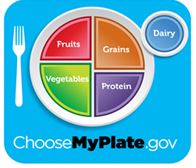AMOS 8:1-2 Thus THE LORD GOD showed me: behold, a basket of summer fruit. And he said, "Amos, what do you see?" And I said, "A basket of summer fruit." [Revised Standard translation] Then the Lord said, "This fruit represents my people Israel—ripe for punishment." [Living Bible Translation]
Summary
The book of Amos is a book about prophetic justice and judgment. Amos was a prophet---a spokesperson for GOD, predicting and foretelling GOD's plan for the people, including GOD's plan to judge and punish Israel for their sin. GOD was going to punish Israel because the people had disobeyed GOD. They had broken covenant with GOD by repeatedly worshipping idols. The wealthy elite were becoming rich at the expense of the poor, stealing even their "smallest crumbs" with taxes, fines and unjust interest rates. There was rampant corruption and social injustice everywhere, even in the courts. Individual pride, the lust for power and self-interest were more important to the people than GOD or righteousness.
In the 7-8 chapters of the books of Amos, (i.e., The Book of Visions), Amos describes a series of visions from GOD. In the first two vision narratives (in the 7th chapter) Amos seems to persuade GOD not to carry out the punishment on Israel that GOD described to Amos in these two visions. However, in the 8th chapter, GOD gives Amos a third vision. GOD shows Amos a basket of summer ripe fruit. The kind of ripe fruit Amos saw may have included strawberries, peaches, blueberries or cherries. In the hot Middle East sun, this type of ripe summer fruit would not have lasted long. The fruit would turn brown. It would become soft. It would have decayed, spawn mold, began to rot and then smell. Eventually it would have to be "dealt with." Through this vision, GOD lets Amos know that, like ripe rotting fruit, Israel's sin and social injustices had gone unchecked too long. The stench of Israel's sin had simply become too great. It had to be "dealt with." GOD would not defer punishment any longer. It was judgment time.
FRUIT
The Dietary Guidelines for American, 2010, published by the U.S. Department of Health and Human Services (HHS) and the U. S. Department of Agriculture (USDA) have jointly published The Dietary Guidelines for Americans every five years, since 1980. The guidelines used to appear as a pyramid. The guidelines now appear as a plate:
Half of the items on the plate are fruits and vegetables. What do your plates look like? The 2010 Dietary Guidelines for Americans, released on January 31, 2011, emphasized three major goals for Americans:
- Balance calories with physical activity to manage weight (i.e., exercise, eating and weight management go together);
- Consume more fruits, vegetables, whole grains and fat-free and low-fat dairy products, and seafood;
- Consume less salt, saturated fats, trans fats, cholesterol, sugar and refined grains. [Grains include whole wheat flour, oatmeal, and brown rice. Refined grains are grains that have been milled to remove the bran and wheat and other germs, such as white bread, white rice, white flour-the stuff of most deserts.]
So, fruits are important for healthy living.
Many food guidelines recommend at least 2-4 servings of fruit per day. Fruits are rich in vitamins and nutrients and daily consumption of fruit is generally considered necessary for a good health. [Note: If you have a medical condition, your doctor may have other dietary recommendations or restrictions, including restrictions on fruit.] However, just as there is a difference between eating molding rotten fruit or pesticide laden fruit and eating recently picked "fresh fruit."
Livestrong.com has the following recommendations for buying and storing fruit:
- Buy the freshest fruit possible by purchasing your fruit from a farmers market or grocery store (if you do not grow your own). Look for bruising, damage, mold (e.g. at the bottom of plastic containers), soft spots and try to avoid purchasing overripe fruit. [Ask whether the fruit is pesticide free.]
- Ask questions and learn about the season for various fruits and the spoilage rate of the fruit you purchase. For example blueberries tend not to last longer than four to six days.
- Store most fruit in the refrigerator with the exception of most tropical fruit and apples.
- Never store fruit and vegetables together. The ethylene produced by the vegetables will make the fruit rot faster.
See, www.livestrong.com. Other tips for storing fruit can be found at: www.heart.org, "Keep Fruit and Vegetables Fresher Longer," and at www.bargaineeing.com "How To Keep Fruit and Vegetables Fresh As Long As Possible." Most recommend not washing fruit until right before you use or eat it and consider blending the fruit before it spoils as an option.
Spiritual Fruit
Not only must we be mindful of the fruit we eat (or give our children) but we must be mindful of whether we are "spiritually fruitful." Like the Israelites during the time of the prophet Amos, our choices have consequences. We are all accountable.
Galatians 5:22 states "the fruit of the [HOLY] SPIRIT" is love, joy, peace, patience, kindness, goodness, faithfulness, gentleness and self-control. (See Living Bible translation.) Today, let us pray for wisdom. Let us pray that we act justly (and never become indifferent to society's wrongs), love mercy, walk humbly with GOD and obey GOD.
Pray we all have better health according to American's Guidelines and GOD's guidelines.
Pray for a steady diet of HOLY SPIRIT FRUIT and BE BLESSED



